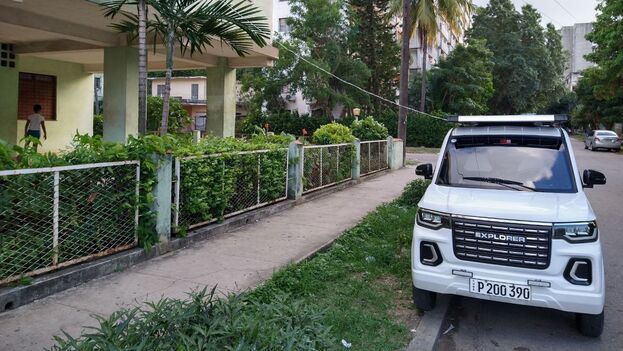
![]() 14ymedio, Natalia López Moya, Havana, 11 November 2022 – Long extensions, or ’electrical clotheslines’, are as common for Cubans as are power cuts. With many metres of cable which run from one block to another it’s possible to get around the lack of power, or even to light up a whole quarter illegally, without being metered. And now the cables are helping to charge up the electric vehicles which are, little by little, beginning to appear on the streets of Cuba.
14ymedio, Natalia López Moya, Havana, 11 November 2022 – Long extensions, or ’electrical clotheslines’, are as common for Cubans as are power cuts. With many metres of cable which run from one block to another it’s possible to get around the lack of power, or even to light up a whole quarter illegally, without being metered. And now the cables are helping to charge up the electric vehicles which are, little by little, beginning to appear on the streets of Cuba.
Motorcycles, tricycles and quad bikes form part of this fleet that needs no fossil fuels to get it moving, but it needs to be connected to the electricity supply, a service which is becoming more and more unstable because of the poor technical state of the Island’s power stations. “I payed nearly 7,000 dollars for this tricycle and though I really like it, sometimes it’s a real headache trying to get it charged”, says Liam, a young Hababero who earns a living as a food delivery driver.
“I live on a high storey, so I can’t just pick up the bike, fold it in half, put it in the lift and connect it to the electric socket in the flat. The battery itself is too heavy for carrying from one place to another”, says the delivery man. “I’ve managed to get a neighbour to pass me a cable from their [lower] balcony and I pay them a monthly amount for the service”, he says. Scenes of electric cables like this stretching from balconies down to shiny new vehicles parked on the street are becoming more and more common.
Although the authorities announced months ago that they were working on the installation of solar powered outlets in locations that would ensure the charging of these vehicles with 100% renewable energy, the process has been slow and they have hardly even been able to install a few power points, for state companies. “I’ll have to be able, one way or another, to charge up the tricycle at home, but even that is a box of surprises because you don’t know when there’s going to be a power cut”, complained Lisandra, a resident in the city of Ciego de Ávila.
“What we do is, if we don’t have electricity in our quarter we try to get it by connecting to another”, she adds. “For that, we have to go everywhere with an extra extension cable, just in case”. The old ’electric clothesline’ which has saved so many Cubans from long hours of darkness, that is, from the punishment of Unión Eléctrica, is now helping them to get around: “Pass me the cable over the balcony so I can charge up the car”, is already a not-unfamiliar thing to hear on the Island of the power cuts.
Translated by Ricardo Recluso
____________
COLLABORATE WITH OUR WORK: The 14ymedio team is committed to practicing serious journalism that reflects Cuba’s reality in all its depth. Thank you for joining us on this long journey. We invite you to continue supporting us by becoming a member of 14ymedio now. Together we can continue transforming journalism in Cuba.
